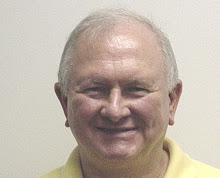How old is the earth?
That should be easy to calculate from any number of processes. And it is. The problem is that the different processes give different answers. Here’s basically how to do it. Let’s say there is a process (radioactive decay) that converts one substance (call it A)into another (call it B). All we need to know is the rate of conversion and the amount of substance B created by the process. We can observe the current rate of conversion and assume that has been constant over time. We can assume that all of substance B currently in existence was the product of the conversion. Divide the quantity by the rate and you get the time. Simple, no?
What’s that you say? How do we know that all of B came from the conversion process? I told you. We assume it. Now what? How do we know there was no change in the conversion rate over the years? We assume it. For short periods of time that is not a bad assumption. What? You want to know how we can be sure the rate did not change over millions of years? What kind of radical trouble maker are you anyway? What part of ASSUME do you not understand?
Besides, the earth must be billions and billions of years old in order for evolution to have created the current array of humans and livestock form the primordial rocks. No intelligent person doubts the extreme age of the earth. Anybody who thinks the earth is young must be some kind of nut.
More to come . . .

6 comments:
Rick,
You know what they say about what it means to ASSUME... Just sayin'.
(:D) Best regards...
Indeed, sir.
Personally, my theology (Intelligent Design) has LOTS of room for an old Earth...since "With the Lord a day is like a thousand years, and a thousand years are like a day." And so forth.
Y'know?
Except for that troublesome "evening and morning" bit. However, it is one thing to be able to accommodate an old earth and another to require it. The creation model does not need an extremely old earth; the evolutionary model does. So then the question becomes whether or not the physical evidence can be interpreted as giving young or old ages. I will go into more detail in another post.
Having some background in geology (in addition to my passion for underground exploration) it's easy for me to believe that the deposition of all the various strata and formation of massive speleothems took eons to occur.
That being said, I realize there are some who maintain that God created such things in an instant...although whereas I believe He could have, it doesn't necessarily follow that He did. Y'know?
There is so much evidence for a young earth that one little comment box cannot hold it. But just the orbit of the Moon is an example of why the Earth cannot be all that old in its present form. That there are still helium atoms in zircon within granitic rock? That almost all natural gas and oil is under pressure that has not escaped? That so many features of the rock record make no sense without a global flood event? That the evident life cycle of the Sun would have made life impossible several million years ago when it supposedly began...
Also I did a long study on the word YOM and how it is used in the OT and unfortunately it ALWAYS means a literal day when used with a number or with evening and morning and pretty much any case you can find. God could have chosen a word that meant "period of time." He didn't.
Post a Comment